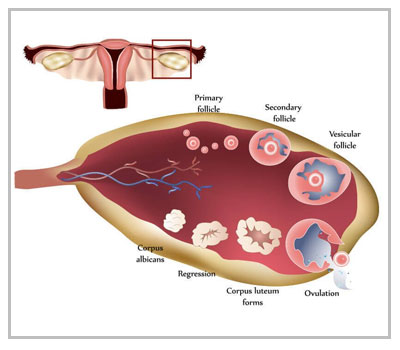Low Anti-Müllerian Hormone (AMH) levels can be an important indicator of a woman’s fertility health. If you're planning to conceive or concerned about your reproductive well-being, understanding the symptoms of low AMH can provide valuable insight into your fertility potential. This article will walk you through the significance of AMH, seven key symptoms to watch for, and why addressing these issues with an expert like Dr. Alka IVF can make a difference.
What is AMH and Why Does It Matter?
AMH, or Anti-Müllerian Hormone, is a hormone produced by the ovarian follicles. It serves as a measure of a woman’s ovarian reserve, which refers to the number and quality of eggs remaining in the ovaries. A low AMH level may indicate reduced fertility potential, often linked to conditions such as premature ovarian aging or other reproductive challenges.
Women with low AMH levels may experience a range of symptoms, but these are often subtle and can go unnoticed until fertility challenges arise. Recognizing these early signs is key to seeking timely medical guidance.
7 Early Symptoms of Low AMH
1. Irregular Menstrual Cycles
One of the most common symptoms of low AMH is irregular or missed periods. Since AMH levels correlate with ovarian activity, a decline can disrupt the regular release of eggs, leading to inconsistent cycles. Women may experience shorter, longer, or skipped cycles, which could indicate a reduction in ovarian reserve.
2. Difficulty Conceiving
For many women, difficulty in getting pregnant is often the first noticeable symptom of low AMH levels. A diminished ovarian reserve can make it harder to conceive naturally, even in the absence of other fertility issues. If you’ve been trying to conceive for over a year without success, it might be time to check your AMH levels with a fertility specialist like Dr. Alka IVF.
3. Decreased Menstrual Flow
A lighter-than-usual menstrual flow could be a red flag. Low AMH levels often correlate with reduced ovarian activity, which can impact the thickness of the uterine lining and overall menstrual flow.
4. Hot Flashes or Night Sweats
Hot flashes and night sweats, typically associated with menopause, can also occur in women with low AMH levels. These symptoms arise due to hormonal imbalances linked to declining ovarian function and estrogen production.
5. Fatigue and Mood Swings
Hormonal fluctuations caused by low AMH levels can lead to emotional and physical symptoms such as fatigue, irritability, and mood swings. These changes can mimic symptoms of stress or other health conditions, making it essential to pinpoint the underlying cause.
6. Vaginal Dryness
Low estrogen levels, often associated with reduced ovarian reserve, can lead to vaginal dryness. This symptom may cause discomfort during intercourse and affect overall vaginal health.
7. Family History of Early Menopause
If women in your family have experienced early menopause, it’s important to monitor your AMH levels. A genetic predisposition to reduced ovarian reserve can manifest through early symptoms such as irregular periods or difficulty conceiving.
Diagnosing Low AMH
While the symptoms of low AMH are important indicators, they are not definitive proof of diminished ovarian reserve. A blood test to measure AMH levels is the most accurate way to diagnose the condition. Additional diagnostic tools, such as ultrasound scans to assess ovarian follicles, can provide a clearer picture of fertility health.
Dr. Alka IVF, a leading name in fertility care, offers comprehensive diagnostic services to evaluate AMH levels and ovarian health. With state-of-the-art technology and a patient-centric approach, Dr. Alka IVF ensures that every woman receives personalized care tailored to her unique needs.
What Causes Low AMH?
Several factors can contribute to low AMH levels, including:
- Age: AMH levels naturally decline as women age, particularly after 35.
- Genetics: A family history of early menopause can impact AMH levels.
- Lifestyle: Smoking, poor diet, and stress may negatively affect ovarian health.
- Medical Conditions: Endometriosis, polycystic ovary syndrome (PCOS), or autoimmune diseases can influence AMH levels.
Understanding these causes can help you take proactive steps toward preserving fertility.
Treatment Options for Low AMH
While low AMH can pose challenges, it doesn’t necessarily mean infertility. Several treatment options can enhance fertility, including:
1. Lifestyle Modifications
Adopting a healthy lifestyle, such as maintaining a balanced diet, exercising regularly, and reducing stress, can support overall reproductive health.
2. Fertility Medications
Certain medications can stimulate ovarian activity and improve the chances of ovulation.
3. In Vitro Fertilization (IVF)
IVF remains a leading solution for women with low AMH. By using advanced techniques, specialists like Dr. Alka IVF can maximize the chances of successful fertilization and implantation.
4. Egg Freezing
For women who wish to delay pregnancy, egg freezing offers a way to preserve fertility while AMH levels are still adequate.
Why Choose Dr. Alka IVF?
When navigating the challenges of low AMH, having a trusted expert by your side can make all the difference. Dr. Alka IVF is a renowned fertility clinic that specializes in diagnosing and treating conditions like low AMH. With a team of experienced professionals and cutting-edge technology, they provide a supportive environment where patients can feel empowered to take control of their fertility journey.
When to Seek Help
If you’re experiencing symptoms of low AMH, it’s crucial to seek medical advice sooner rather than later. Early intervention can help identify the underlying cause and open doors to effective treatment options. Dr. Alka IVF is here to guide you every step of the way, offering expert care and personalized solutions.
Final Thoughts
Low AMH can feel like an intimidating diagnosis, but understanding its symptoms and seeking timely care can make all the difference. By recognizing signs such as irregular periods, difficulty conceiving, and hormonal imbalances, women can take proactive steps toward protecting their fertility.
Whether you’re just beginning your fertility journey or exploring advanced treatment options, Dr. Alka IVF provides compassionate, expert care tailored to your needs. Don’t let low AMH hold you back—take control of your reproductive health today.





Comments